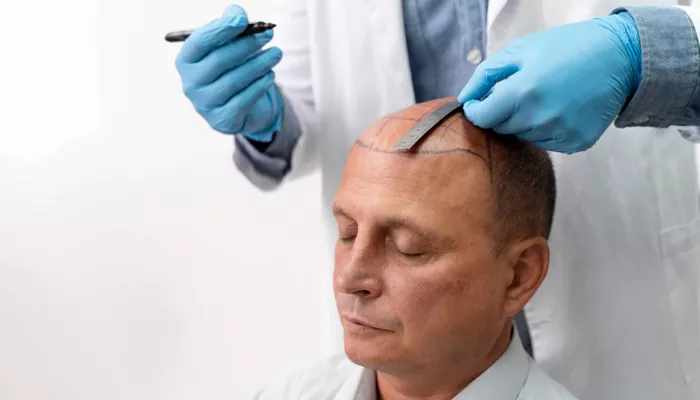Hair transplant procedures have gained popularity over the years. Many people seek this solution to combat hair loss. However, concerns about the body rejecting a hair transplant often arise. Understanding the possibility of rejection and the factors that influence the success of hair transplants is essential. In this article, we will explore whether your body can reject a hair transplant, the signs of rejection, and what you can do to ensure a successful procedure.
Understanding Hair Transplants
Hair transplants involve moving hair follicles from one part of the body to another. This procedure typically focuses on the scalp but can also apply to eyebrows, beard, or other areas. There are two main techniques for hair transplants:
Follicular Unit Transplantation (FUT): This method involves removing a strip of skin with hair follicles from the donor area. The strip is then dissected into individual follicular units and transplanted into the recipient area.
Follicular Unit Extraction (FUE): This technique extracts individual hair follicles directly from the donor area using a small punch tool. The follicles are then implanted into the recipient area.
Both methods have proven effective for restoring hair. However, concerns about the body rejecting transplanted hair remain prevalent.
Can Your Body Reject a Hair Transplant?
The short answer is no; your body does not “reject” hair transplants in the same way it can reject an organ transplant. However, certain factors can influence the success of a hair transplant. Understanding these factors is crucial for achieving the desired results.
Immune Response and Hair Transplants
While the body does not reject hair transplants outright, the immune system plays a role in the healing process. When hair follicles are transplanted, the body recognizes them as foreign. However, because hair follicles do not have their own blood supply, the risk of rejection is significantly lower.
Hair Follicle Survival
Once hair follicles are transplanted, they undergo a process called “shock loss.” This means that some transplanted hair may fall out within the first few weeks after the procedure. This can be alarming, but it is a normal part of the healing process. The follicles typically enter a resting phase and eventually begin to regrow hair.
SEE ALSO: When Can I Start Drinking Alcohol After a Hair Transplant?
Factors Affecting Hair Transplant Success
Several factors can influence the success of a hair transplant. Understanding these factors can help you prepare for the procedure and ensure the best results.
1. Donor Hair Quality
The quality of the donor hair is critical for a successful transplant. If the donor hair is weak or thin, it may not thrive in the recipient area. Surgeons often assess the donor area for hair density and overall health before proceeding with the transplant.
2. Surgical Technique
The skill and experience of the surgeon play a significant role in the success of a hair transplant. A well-executed procedure can minimize trauma to the hair follicles, increasing their chances of survival.
3. Post-Operative Care
Following the transplant, proper care is essential. Patients must follow their surgeon’s post-operative instructions to ensure healing and hair growth. Neglecting care can lead to complications and affect the outcome.
4. Individual Health Factors
Overall health can impact the success of a hair transplant. Conditions such as diabetes, autoimmune disorders, or hormonal imbalances may affect healing and hair growth. Discussing your medical history with your surgeon is vital for assessing your suitability for the procedure.
Signs of Complications After a Hair Transplant
While rejection of the hair follicles is unlikely, complications can occur. Being aware of the signs of complications can help you seek timely medical attention.
1. Infection
Infections can happen after any surgical procedure. Signs of infection include:
Increased redness or swelling around the transplant site.
Pus or drainage from the surgical area.
Fever or chills.
If you notice these symptoms, contact your surgeon immediately.
2. Poor Hair Growth
If transplanted hair fails to grow after several months, it may indicate a problem. Factors such as poor blood supply or trauma to the follicles can affect growth.
3. Scarring
Some degree of scarring is normal after a hair transplant. However, excessive scarring can affect hair growth. If you notice unusual or excessive scarring, consult your surgeon.
Ensuring a Successful Hair Transplant
To increase the chances of a successful hair transplant, consider the following tips:
1. Choose a Qualified Surgeon
Selecting a board-certified and experienced hair transplant surgeon is crucial. Research their credentials and read reviews from previous patients.
2. Follow Pre-Operative Instructions
Your surgeon will provide specific instructions before the procedure. This may include avoiding certain medications, smoking, and alcohol. Following these guidelines can improve the outcome.
3. Adhere to Post-Operative Care
After the transplant, follow your surgeon’s care instructions diligently. This may include avoiding vigorous exercise, sun exposure, and certain hair products for a specified period.
4. Manage Expectations
Hair transplants do not provide instant results. Understand that hair growth takes time. Set realistic expectations regarding the timeline and final results.
5. Maintain a Healthy Lifestyle
Eating a balanced diet, staying hydrated, and managing stress can positively impact hair growth. Regular exercise and proper sleep can also contribute to overall health, aiding recovery.
Conclusion
In summary, your body does not reject hair transplants as it might with organ transplants. However, factors like donor hair quality, surgical technique, and individual health can influence the outcome. Awareness of potential complications is crucial, as timely intervention can help mitigate issues.
Choosing a qualified surgeon, following pre-operative and post-operative instructions, and maintaining a healthy lifestyle can significantly improve the success of your hair transplant. By understanding the process and what to expect, you can embark on your journey to restored hair with confidence.
You Might Be Interested In

